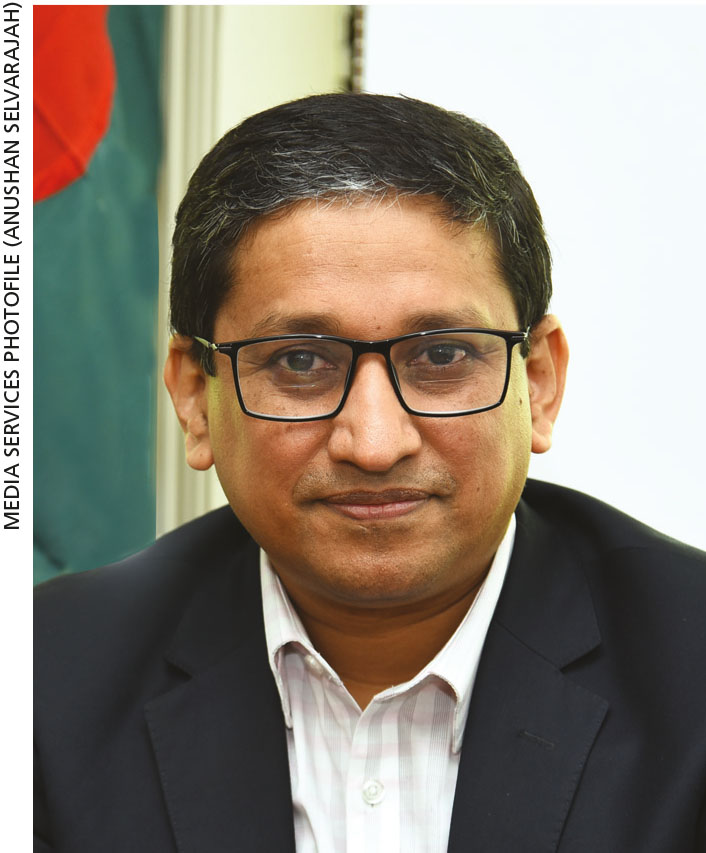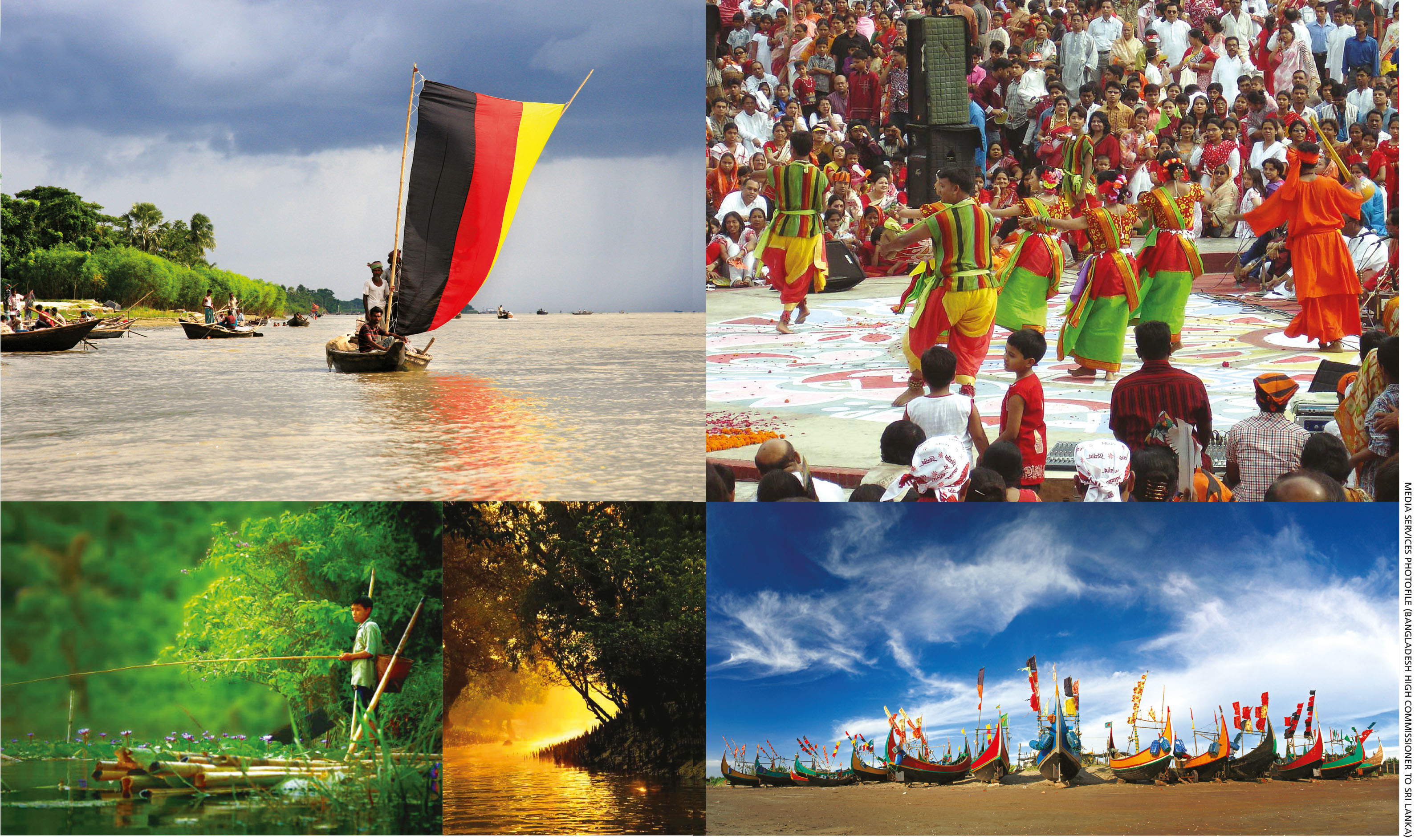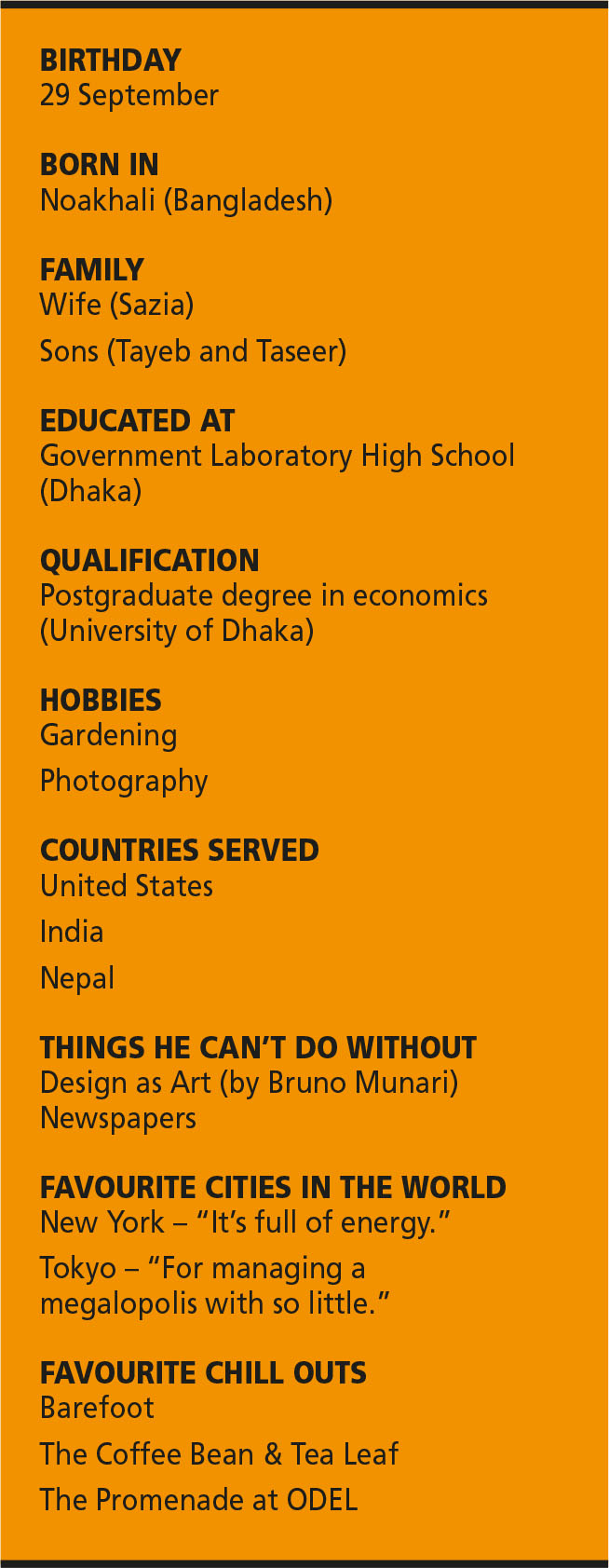DIPLOMATIC MISSION
Compiled by Savithri Rodrigo
INVESTMENT YARDSTICKS
Riaz Hamidullah asserts that peace and harmony will draw investment
The spectator stands at the recently concluded ICC Cricket World Cup 2019 – replete with fans who have painted faces cheering their cricketers – brings to mind one of the most majestic but endangered animals in the world: the Bengal tiger. It reflects not only the natural beauty of Bangladesh but also the story of a proud and honourable people.
This South Asian nation is pushing the envelope to pursue its goal of becoming a trillion dollar economy by 2022. And it is an attainable goal, as Bangladesh’s female driven economy has grown at six percent and over for more than a decade or so. It is a ‘next eleven’ (N-11) economy and frontier market, and has set its sights on becoming the 23rd largest economy on Earth by 2030.
High Commissioner for the People’s Republic of Bangladesh Riaz Hamidullah acknowledges that the journey to reach such a lofty goal hasn’t been easy thus far.
He explains: “We have capitalised on our strengths – being able to govern despite constraints; illustrating visionary leadership; the quest to move forward despite low levels of economic development; and focussing on the robustness, resilience and innovation of our people, emphasising sustainable development.”
Hamidullah asserts that by putting people before the state, Bangladesh made a choice – one that may not have always been understood globally.
“In the 1970s and ’80s, the community, civil society and private sector took charge, demonstrating the possibility of raising income levels from US$ 900 to 1,544 dollars in 2017. Our formula for success has been to liberate women early and give them leadership,” he posits.
Ranked the 39th Most Valuable Nation Brand and 34th in the Inclusive Development Index, Bangladesh also assumes the top spot for gender equality in South Asia – and women hold the key, according to the high commissioner.
“In politics, we have got it right. Both the prime minister and speaker are females. Our next focus is to make women effective in local government even as legislation dictates they represent a third of elected members. In an economic sense, 37 percent of the workforce is female,” the diplomat explains, citing Bangladesh’s ranking as the world’s second largest apparel supplier, which is largely due to women.
The country aims to eradicate absolute poverty by 2021 and is using its mandate for the universal education of girls as a key to unlock this potential.
Hamidullah interprets the narrative between Sri Lanka and Bangladesh as one that goes beyond basic relationships: “Today, we’re all imperative links in the global supply chain whether it’s a case of politics, economics or culture.”
Referring to the commercial capital as “a fantastic city,” he observes that Colombo’s ability to position itself as a beautifully natural polis and thriving hub in multiple dimensions is a major strength.
He surmises that Sri Lanka’s open economy, which embraces a pluralist society, truly makes for a land of opportunity and potential. “Sri Lanka stands to profit by opening up,” Hamidullah maintains, recalling how Bangladesh too was apprehensive but took the plunge some 25 years ago. He adds: “Sri Lanka must take that bold step because you don’t have a choice. Globalisation is here to stay.”
Meanwhile, the Bangladeshi diplomat enthuses over the 30,000 plus Sri Lankan professionals who work and live in his country, many of whom are investors, making for one of the highest concentrations of Sri Lankan expats in the Asia-Pacific region.
“Sri Lankan investors realise that we are all part of the value chain and take advantage of the fact that most of the top 50 global companies have a footprint in Bangladesh,” Hamidullah emphasises.
He cites pluralism, stability and harmony as crucial for Sri Lanka, saying: “Once the social fabric is upheld, the economy would follow. Language is a unifying factor and key strength along with diversity. How you treat the narrative and translate it into real action is up to you.”
It follows that Hamidullah hopes for a more open as well as inter and intra-connected Sri Lanka with a truly harmonious society in the next decade or so: “Peace and harmony would attract investment – it’s not simply about politics but also the economy.”
As for next generation global leaders, he believes that the overarching dynamic would centre on how they approach the world by understanding and configuring their responsibilities – whether this is in relation to climate change, radicalisation, migration or sustainable development.
He elaborates: “Their commitment to peace and harmony, and understanding of people, are important. Fault lines must be addressed and handled with astute judgement. Good governance is the latent fundamental. These are challenges for next generation leaders.”
And the high commissioner cites a rapidly transforming world of work – where responsibility and equitability are part of the landscape – as being a global issue. “Sustainable development that goes beyond rhetoric and involves meaningful action is another concern. Currently, it’s only being viewed through the prism of environmental or limited social attributes. Fundamental course corrections including a focus on sustainable consumption and production, inclusive societies and rule of law are needed,” Hamidullah urges.
He concludes that re-education also remains vital for global progress: “Place an ‘A’ for arts in the middle of the ‘STEM’ curriculum and make it ‘STEAM’ – if creative thought isn’t inculcated in the system, we lose the future.”







